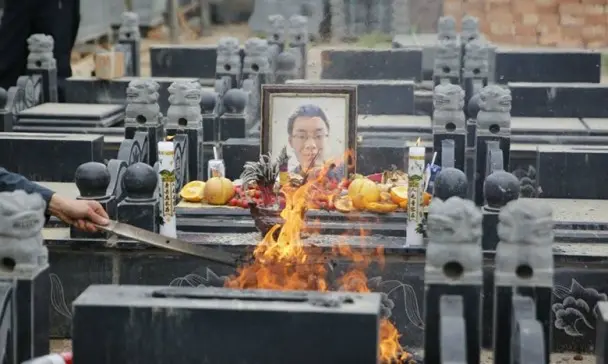The National Health and Family Planning Commission, China's top health authority, is formulating plans to establish a family doctor system to ensure a well-organized and orderly healthcare environment.
The move comes after the news that a 21-year-old computer science student with cancer died after undergoing an experimental cancer therapy that was heavily promoted by Baidu, China's leading internet search engine.
Wei Zexi, from Shaanxi province, who died on April 12, had synovial sarcoma, a rare cancer of the soft tissue. He paid 200,000 yuan ($31,000) for four courses of immunotherapy at the biomedical center of the Second Hospital of the Beijing Armed Police Corps, a military hospital that had outsourced the work to private service providers.
Although there is no suggestion that Wei's death was caused or accelerated by the treatment, it was later revealed to be an experimental process that had not be cleared for clinical use.
In a message posted online shortly before his death, Wei said he chose the hospital after seeing its name displayed prominently on Baidu when he was searching for information about his illness.
The case, which made headlines around the world, exposed Baidu's reliance on paid listings, which rank search results according to how much the advertisers have paid, and the low levels of supervision in some military hospitals.
The Cyberspace Administration of China, the online watchdog, held its own investigation and released a statement demanding that Baidu, which holds about 70 percent of China's search-engine market, restructure its listing services.
It said Baidu relied excessively on profits from paid search listings and failed to clearly identify commercial promotions, which compromised the objectivity and impartiality of its search results.
On April 5, Li Bin, the commission's director visited a primary healthcare center in Beijing as part of preparations for her top priority for the next five years - establishing a system under which every family will be registered with a general practitioner.
"It will help to establish a well-organized and orderly healthcare system to better ensure public health," Li said, during the visit.
Liu Yuanli, dean of the School of Public Health at Peking Union Medical College, said Li's visit signaled a new approach to healthcare: "A family doctor system would help prevent tragedies like Wei's in the future."
A patient waits at the front gate of the Second Hospital of the Beijing Armed Police Corps. The hospital made headlines around the world after the death of cancer patient Wei Zexi, who underwent experimental treatment at a clinic in its grounds. Photo: China Daily
Limited information
Few people in China are registered with general practitioners, and limited public access to information related to health and medicine means they have to resort to other methods to learn about health issues.
"So the internet, specifically the nation's search giant Baidu, has become the most-popular accessible resource," Liu said.
He said family doctors can cover most healthcare needs, such as disease prevention and sustained treatment, particularly for chronic conditions, but in an effective primary healthcare system, general practitioners can refer patients to qualified specialists if necessary.
"They can serve as the gatekeepers for primary healthcare and individual health," he said.
Du Xueping, head of the Chinese Medical Doctor Association's general practice committee, said the lack of a GP system means people swarm to large public hospitals, even for minor ailments such as common colds.
She said the authorities have acknowledged the challenges of establishing a family doctor system in China: "A link to health insurance is being considered to make sure people turn to family doctors first."
The State Council has now ordered greater efforts to increase access to family doctors and establish a GP system by improving career security for doctors and diverting more resources to the grassroots.
Liu, of Peking Union Medical College, urged the establishment of a dedicated search engine that would provide healthcare information to help people to identify misleading information and make informed choices.
He said the system would resemble NHS Choices, the official website of the National Health Service in the United Kingdom, which is free from commercial involvement.
Launched in 2007, NHS Choices is the UK's biggest medical website, accounting for about 25 percent of all health-related web traffic, such as searches for information about symptoms, illnesses and the most up-to-date treatments, according to Liu.
(CHINA DAILY)
 简体中文
简体中文

